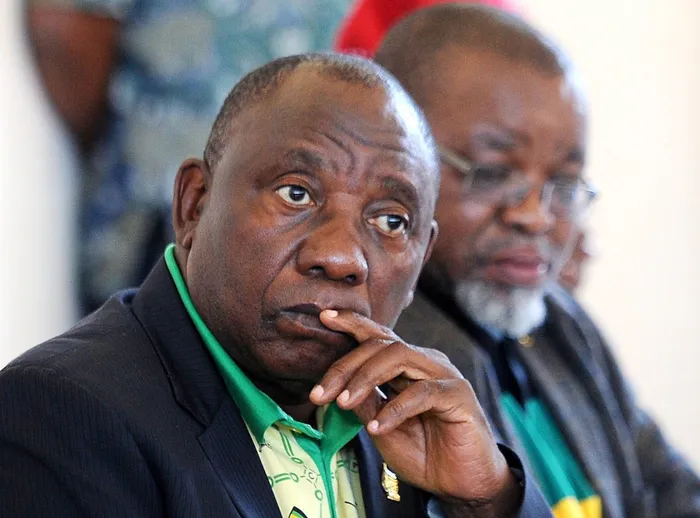Ethical leadership has become rare commodity in SA

Picture: Ayanda Ndamane/ African News Agency ANA
By Professor Bheki Mngomezulu
The reconfiguration of the political landscape in South Africa has placed African leaders at the centre of our politics. While this is a commendable development in terms of giving Africans agency to determine their fate, it has come with certain demands and responsibilities which Africans struggle to meet. One of them is ethical leadership.
Noticeably, with each leader who ascends to power, ethics tend to slip away. Consequently, the cry for ethical leaders has become louder while ethical leadership itself has become a rare commodity. This has become a general trend across Africa. South Africa too has had its fair share of this evidently dwindling ethical leadership. In a nutshell, ethical leadership combines two concepts: ethics and leadership. The word ethics means moral principles that govern a person’s behaviour. It is about doing that which is morally acceptable. Leadership refers to the state of being a leader; the process of leading.
An ethical leader is one with ethics.
Without exception, the political leadership in South Africa under apartheid lacked ethics. There was no way that apartheid leaders could be described as being ethical when they presided over a state that was itself unethical at best and illegitimate at worse. The apartheid state dehumanised those who were not white. It further treated Africans, coloureds and Indians differently. The 1983 Tricameral Parliament accommodated coloureds and Indians in the governance of South Africa while excluding the Black majority. As if this were not enough, the homeland or Bantustan system pitted Black communities against one another ethnically. This was unethical behaviour.
The dawn of democracy in 1994 brought a glimmer of hope that the African political leadership was going to lead in an ethical manner. Things seemed to be going well as Mandela became the first democratically elected president of South Africa. He preached reconciliation, had tea with the widows of his oppressors and embraced all racial groups.
Using sport as a glue that had the potential to bind the nation together, Mandela donned the Springbok jersey in 1995 and celebrated with a white captain as he lifted the World Cup trophy. He did the same in 1996, when Bafana Bafana won the African Cup of Nations. In 1999, Thabo Mbeki assumed the presidency after having been Mandela’s shadow. Determined to project himself as an ethical leader, Mbeki invoked Section 84 of the Constitution of South Africa and removed Jacob Zuma as his deputy. This was after a court had found that Zuma and his financial adviser Schabir Shaik had a corrupt relationship. Whether this was true could not be immediately established.
While it is true that Mbeki consolidated ties between South Africa and other African countries, and worked with former Nigerian president Olusegun Obasanjo, Colonel Muammar Gaddafi and other African leaders to change the Organisation of African Unity into the AU, it was under his administration that the Arms Deal saga happened – an event which continues to haunt South Africa today.
Zuma became the president of South Africa following the ANC’s victory in 2009. Among other things, Zuma pushed the infrastructure development project across the country. It was also under his administration that South Africa joined the Brics group. There were other achievements too, such as containing Ebola and rolling out the HIV/Aids treatment programme.
Despite these and other achievements, ethical leadership continued to dwindle under Zuma’s administration. It is true that he found the Gupta brothers in the system. His laissez fair leadership style allowed many of his comrades to engage in corrupt activities, as evidenced in the Zondo Commission Report.
In 2018, when Zuma was forced to resign as president, Cyril Ramaphosa came in to finish his term. He then took over after the 2019 election. Ramaphosa gave South Africans false hope. He complained about “nine wasted years” under Zuma, promised a “New Dawn” and many other things, which gave the impression that he was going to be an ethical leader.
In February 2020, his Phala Phala farm was broken into and thousands of US dollars were stolen. Subsequent developments ruled him out of the list of ethical leaders. When the Section 89 panel, led by retired Chief Justice Sandile Ngcobo, produced a damning report against Ramaphosa, he took it under review instead of allowing parliamentarians to debate the issue and make their determination.
Tacitly conceding that there is dearth of ethical leadership in the ANC, Ramaphosa’s supporters argued that if he were to resign there would be no one to fight corruption. What they failed to realise is that with the Phala Phala matter hanging over his head, Ramaphosa too lacks ethics. Failure to find ethical leaders in South Africa confirms the view that ethical leadership has become a rare commodity.
Bheki Mngomezulu is professor of political science and international relations at the University of the Western Cape.
Related Topics: